Cataract: Meaning, Types, Causes, Symptoms, Treatment & Cost
Every age group faces some eye problems, and often, in old age, people start to experience cataract symptoms. This is when a cloudy layer forms in the lens. If a person experiences anything like this, they must have fulfilled knowledge about cataracts, their types, benefits and treatments. All the vision issues that are associated with the eyes. Whenever a person faces some issue while seeing at a distance, nearby objects, reading something, identifying something or is troubled by clouding of the eyes. Many of these ailments are drawn due to the cataract problem.

WHAT IS CATARACT
A cataract is the cloudiness of the normally transparent lens of the eye. It occurs mainly as a result of protein build-up in the eye lens. The opaque or cloudy lens creates poor vision making objects look blurry or hazy.
Cataracts are of different types and usually develop in both eyes. In some cataract the lens may turn brown like in nuclear cataracts. It create difficulty in distinguishing various color shades.
Certain cataracts develop in newborn babies due to various reasons like infection, trauma, and galactosemia.
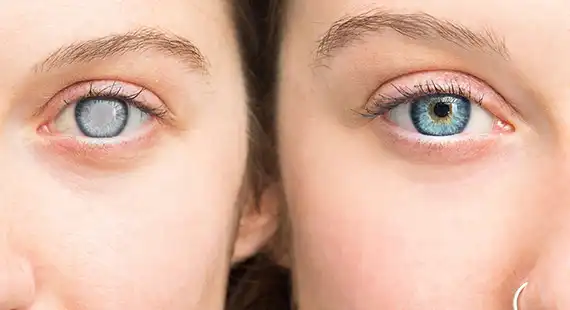
TYPES
Posterior Subcapsular Cataract
Occurs at the back of the lens
1
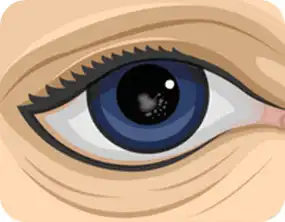
Nuclear Cataract
Develops in the central zone of the lens.
2
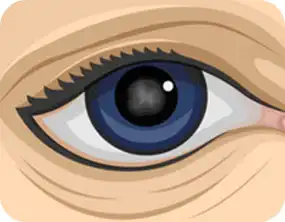
Cortical Cataract
Forms in the periphery of the lens
3
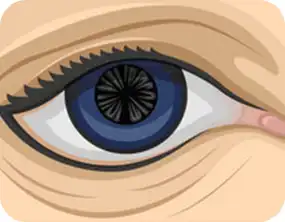
Trauma-induced Cataract
Traumatic cataract is a clouding of the lens that may occur after either blunt or penetrating ocular trauma that disrupts the lens fibres.
4
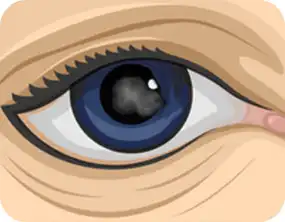
Congenital Cataract
Congenital cataracts refers to a lens opacity that is present by birth.
5
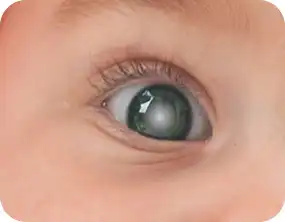
CAUSES
- Ageing
- Exposure to Ultraviolet Radiation
- Diabetes
- Hypertension
- Obesity
- High Alcohol Consumption
- High myopia
- Previous surgery
- Birth defects or genetically inherited
- Excessive Smoking
SYMPTOMS
- Cloudy eye lens
- Blurry or dim vision
- Seeing faded colours
- Yellowish vision
- Difficulty in reading
- Trouble seeing at night
- Halos surrounding light
- Increased sensitivity to glare
- Double vision
- Frequent changes in eye power

DIAGNOSIS
Some of the diagnostic test for cataract:
Vision test
The eye checkup with a chart for measuring visual acuity by making the patient read the letters on the eye chart.
An eye test by slit lamp
The eye examination in which a slit lamp is used to check the eye structures like the lens, iris, and cornea.
Retina examination
An ophthalmoscope is a device that is helpful in examining the retina and lens to look for the cataract in the eye.
DO's
DONT's
TREATMENTS
NON SURGICAL TREATMENTS
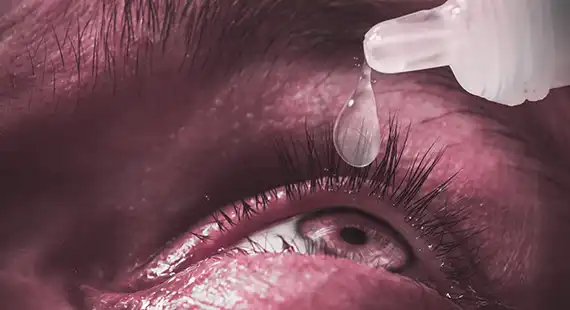
Prescription glasses/contact lenses: In the early stages of cataracts, vision may be improved with prescription glasses or contact lenses. These can help correct refractive errors and improve visual acuity but cannot treat cataracts.
Magnifying lenses: Magnifying lenses or reading glasses may be helpful in improving near vision in individuals with cataracts.
Brighter lighting: Brighter lighting can help improve vision, particularly for tasks that require detailed vision such as reading.
Lifestyle changes: Quitting smoking, reducing alcohol consumption, and maintaining a healthy diet and weight can help slow down the progression of cataracts.
Medications: While there are currently no medications that can cure or reverse cataracts, some eye drops may help improve symptoms or delay the progression of the condition.
Some of the most prescribed medicines for cataracts are Ciprofloxacin, Besifloxacin, Erythromycin, and Moxifloxacin and more of these medications are vital for improving cataracts. Ideally, cataract is only treated through a surgical procedure.
SURGICAL TREATMENTS
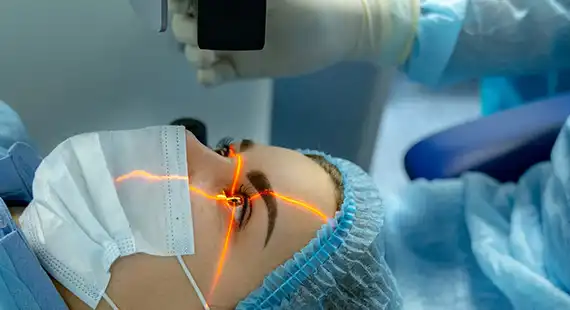
Micro-Incision Cataract Surgery (MICS)
In this cataract surgery, a microincision is made through which the surgeon breaks the lens and removes the broken parts of the lens through suction (Phacoemulsification). Further, the eye surgeon inserts another probe into the empty lens cavity and inserts and fixes and adjusts an Intraocular Lens (IOL).
Femtosecond-Laser-Assisted Cataract Surgery (FLACS)
The cataract is removed through laser-assisted surgery in this procedure. The eye surgeon inserts a tiny probe into the eye, which emits ultrasound waves. These waves soften and break the lens, which is then sucked out using the phacoemulsification process. Further, another probe is inserted to fix and adjust an IOL in the empty lens cavity.
RISKS AND COMPLICATIONS
Risk of cataract increases with:
- Exposure to sun rays
- Increase in age
- Detected Diabetes
- Past Eye surgery
- Higher blood pressure
- Alcohol intake
- Family history

IF LEFT UNTREATED
If left untreated: If a cataract is left untreated, the patient might develop a lot of strain on the eyes, causing glaucoma. In severe cases, it can also lead to complete blindness, which is often irreversible.
COST
The average cost of cataract surgery is 25,000 to 35,000 INR in India. However, the costs of this condition differ with the type of procedure used and the choice of the hospital.
Financial Options

INSURANCE COVERAGE
Cataract surgery is generally covered by health insurance plans, as it is considered a medically necessary procedure to restore vision. However, the specific coverage and out-of-pocket costs can vary depending on the insurance plan and individual factors.
Some plans may require a co-pay or deductible, while others may cover the entire cost of the procedure. It is important to check with the insurance provider to understand the specific coverage details and any potential costs associated with the surgery. Additionally, some premium lens options or advanced surgical techniques may not be fully covered by insurance, so it is important to discuss these options with the surgeon and insurance provider.

Reviews
View All
MUSTRI
Cataract
Hi, I am Ansari, I got my mother's (Mustri) cataract surgery done because she was facing difficulty to see from her eyes. For th read more

 Cataract | Surgeries
Cataract | Surgeries Dr. Parveen Grover5
Dr. Parveen Grover5  Vision Center Eye Ho...4.3 (15)
Vision Center Eye Ho...4.3 (15) Mumbai
Mumbai

Pavan Singh
Cataract
Hi, my name is Pavan and I live in Maharashtra. I got my cataract surgery done through Glamyo Health and the team has been coope read more

 Cataract | Surgeries
Cataract | Surgeries Dr. Neeti Andersahare5
Dr. Neeti Andersahare5  NAYANAM HOSPITAL4.6 (18)
NAYANAM HOSPITAL4.6 (18) Mumbai
Mumbai

Balvir Sing ...
Cataract
Hi, my name is Balvir Singh and I recently had eye surgery at an eye clinic. The doctor was skilled and explained everything to read more

 Cataract | Surgeries
Cataract | Surgeries Dr. Varun Gogia5
Dr. Varun Gogia5  IClinix-Glamyo4.6 (40)
IClinix-Glamyo4.6 (40) New Delhi
New Delhi

Rupin Rasto ...
Cataract
Dr. Neeti Andersahare is very Humble And Also very Experienced. And I will not forget to mention Akshay Bhatia, who helped me a read more

 Cataract | Surgeries
Cataract | Surgeries Dr. Neeti Andersahare5
Dr. Neeti Andersahare5  NAYANAM HOSPITAL4.6 (18)
NAYANAM HOSPITAL4.6 (18) Mumbai
Mumbai

Rana Sen
Cataract
Very well-experienced doctor. Took good care during surgery. For reasonable pricing, choose Glamyo Health Care. Best for people read more

 Cataract | Surgeries
Cataract | Surgeries Dr. SK Bose
Dr. SK Bose  NAYAN JYOTI EYE CARE...
NAYAN JYOTI EYE CARE...  Kolkata
Kolkata

shila mahan ...
Cataract
Very well-experienced doctor. Took good care during surgery. For reasonable pricing, choose Glamyo Health Care. Best for people read more

 Cataract | Surgeries
Cataract | Surgeries Dr. Raghu Nagaraju4
Dr. Raghu Nagaraju4  Marigold Hospital4 (5)
Marigold Hospital4 (5) Bangalore
Bangalore

Vidyanand A ...
Cataract
With the complete help of Glamyo Health, the cataract surgery went successful and safely done. Pleased that we used these servic read more

 Cataract | Surgeries
Cataract | Surgeries Dr.ASG Hospital
Dr.ASG Hospital  ASG Eye Hospitalnull (null)
ASG Eye Hospitalnull (null) Pune
Pune

ramwati
Cataract
My mother took her Cataract treatment from Glamyo Health. It's been a great experience connecting with them. Mr. Akshay was our read more

 Cataract | Surgeries
Cataract | Surgeries Dr. Piyush Tiwari5
Dr. Piyush Tiwari5  Tewari Eye Hospital
Tewari Eye Hospital  New Delhi
New Delhi

Neetu singh
Cataract
I had a really great experience with Glamyo Health . Harsh from the team was my coordinator and he had helped me throughout the read more

 Cataract | Surgeries
Cataract | Surgeries Dr. Raghu Nagaraju4
Dr. Raghu Nagaraju4  Marigold Hospital4 (5)
Marigold Hospital4 (5) Bangalore
Bangalore

Gaurav
Cataract
It was great experience with glamyo heath the team help me throughout my treatment for ICL and I am feeling happy after my tre read more

 Cataract | Surgeries
Cataract | Surgeries Dr. Govind Yadav5
Dr. Govind Yadav5  VijayGovind Hospital
VijayGovind Hospital  Nagpur
Nagpur
Doctors
View AllBlogs
View All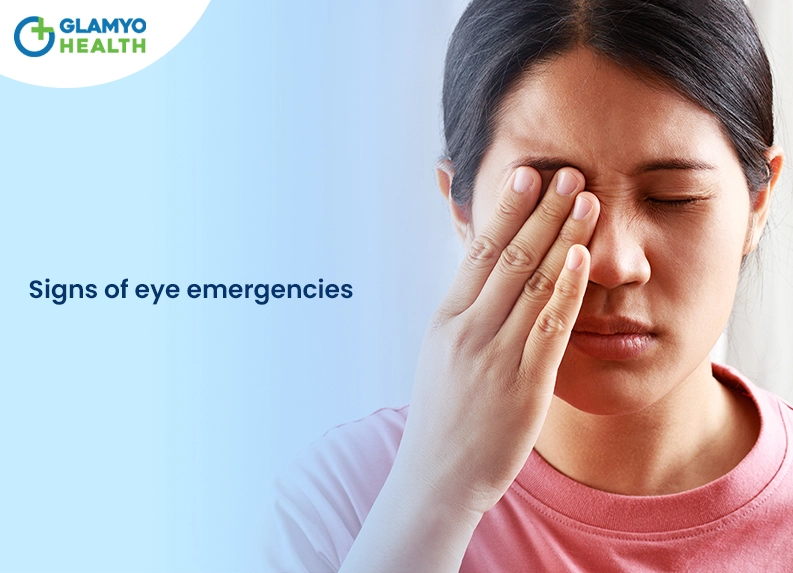
Signs of Eye Emergencies
Eye emergencies are required to be immediately addressed and treated. Though, it can seem like a minor cut or a flare up pain but it is not correct to wait longer for the consultation and possible treatment. For this a specialist opthamologist can be the right person in front of whom the condition can be […]
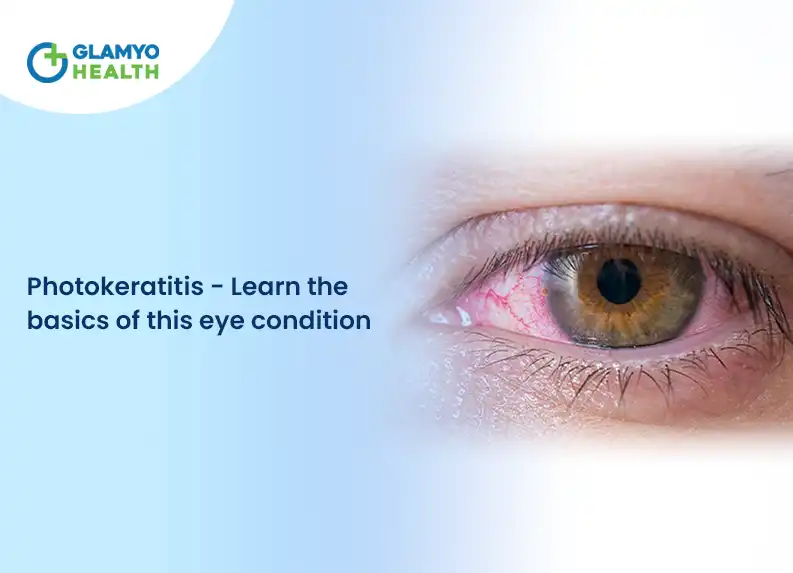
Photokeratitis – Learn the Basics of this Eye Condition
We all enjoy the sunshine and the sun. Many of us love going to the beach on a sunny day to relax and chill. But, have you ever wondered what harm UV light that comes out of the sun can do to the eyes and directly to the cornea of the eyes? Well, have you […]
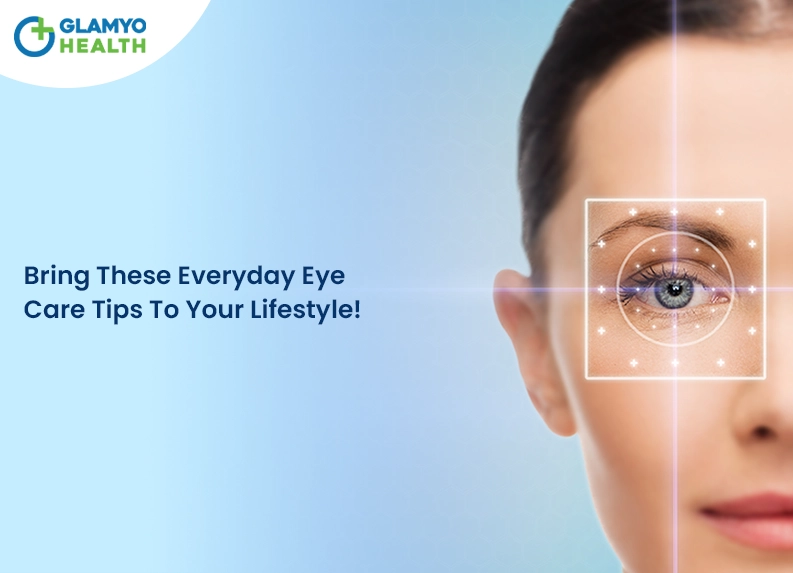
Bring These Everyday Eye Care Tips To Your Lifestyle!
Looking for a way that keeps your eye problems far away, vision sharp and eye disease never reaching you? Well, we got you covered with these essential eye care tips for your daily routine. With these, you will be able to assure that your eye remains healthy and clean. Why is Eye Care So Essential? […]
Know more about Cataract
A cataract is a clouding of the lens in the eye. People with cataracts, face vision issues in almost all their daily activities. Cataracts make it difficult to drive a car at night or look at somebody's facial expression. Cataracts develop slowly and interfere with vision. It is important to make an appointment with the doctor if there are problems arising in vision. Double vision, sudden eye pain, sudden headaches, and problems with flashes of light should prompt you to get an eye checkup done.
Cataracts cannot be prevented but according to doctors certain strategies may be helpful like:
- Regular eye examination
- Quit smoking
- Reducing alcohol intake
- Choosing a healthy diet over junk food
- Wearing sunglasses when needed
- Managing health issues like diabetes and hypertension
At Glamyo Health, expert ophthalmologists will take care of cataract surgery with advanced laser procedures. Get the best, most Affordable, and Advanced Cataract surgery in Delhi, with just a click at the Glamyo Health website, and Book your free Counselling now! Contact Glamyo Health for complete eye care and consultation with eye specialists. Cataract surgery Cost in Delhi at Glamyo Health at the most affordable rates.
To resolve your queries like Who is at Risk of Getting a Cataract? What Are the Signs that you Need Cataract Surgery in Delhi? Is it possible to prevent cataracts? Get the most advanced Lasik eye Surgery in Delhi to regain your vision. Permanent cure. Sharper vision. Painless & Bladeless Lasik Treatment. Glamyo Health has the best doctors for cataract surgery in Delhi. As per cataract surgery reviews, Glamyo Health makes sure that the procedure is performed in a minimally invasive manner with more than 90% success rate.




.jpg)






 New Delhi
New Delhi  Bangalore
Bangalore  Mumbai
Mumbai  Hyderabad
Hyderabad  Pune
Pune  Chennai
Chennai 
